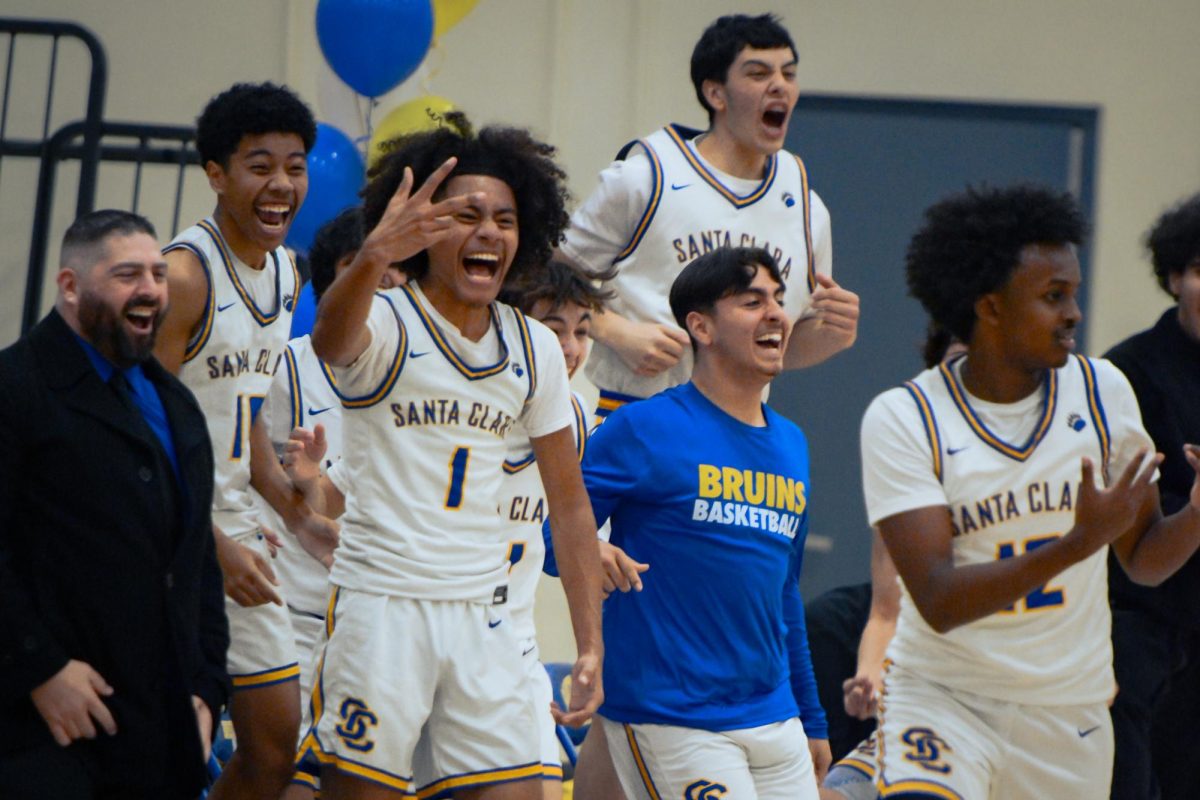When the gym is prioritized for other sports, such as girls and boys volleyball, basketball coach Stephen Forester still makes an effort to practice with his teams. He holds morning practices from 6:00 a.m. to 7:45 a.m. in order to achieve this.
“There’s a sense of accomplishment when we go through some hard stuff in the morning,” Forester said. “And then the rest of their day becomes easier and easier.”
When coaching, Forester feels pride in his athletes’ ability to be present throughout practice.
“When we cover stuff at practice and then I watch them immediately implement it, it just shows that they’re paying attention and they’re locked in and they genuinely want to improve,” Forester said. “That’s one of the most exciting and probably best experiences about coaching. It’s a very awesome feeling to watch.”
Similar to Forester, assistant baseball coach Allan Bonvicino enjoys seeing his athletes progress and grow.
“I want to see guys go to the next level, teaching them and watching them learn and progress,” Bonvicino said. “That’s what I get out of it.”
Baseball practices often include defensive and offensive drills where the coaches will frequently present their athletes with game-like situations, including bunt coverages. The consistent involvement from the coaches helps their players become more prepared.
“It makes them better athletes, makes them get into game situations, so they know what they do, where to position themselves,” Bonvicino said. “It makes them more aware of what’s going on in a live game, and if they know it, they’ll be ready.”
Due to CCS regulations, coaches are not allowed to run practices during the off season, so as an alternative, athletes hold open field. Sophomore Zachariah Gallegos noted the difference between the structure of open field and practice during baseball season.
“When a player runs it, it’s usually just people messing around a lot, and there’s not a lot of structure,” Gallegos said. “If a coach is running it, there’s more of a goal. It’s always better to have someone who has more understanding of the game.”
In the last few years, the SCHS softball team has had problems with filling a JV team. Because of this issue, selected girls would move up to fill spots on the varsity roster. Doing so, however, has created additional issues within the varsity team. Softball coach Julie Kawamoto explained the obstacles the team is currently facing.
“For example, having drills that have an advanced player with a not so advanced player, the only thing that’s good is that the less advanced player is getting better, but the advanced player isn’t,” Kawamoto said. “It’s been really difficult with having girls that don’t know how to play, to try and play with the varsity girls at the same time. We’re just stuck.”
Kawamoto noted that depending on the athletes, she can trust some of them to lead practices.
“We’ve been lucky in the past to have certain girls be able to take other girls aside and work with them, but at the same time, coaches and I are like, ‘How is that getting those certain girls better?’” Kawamoto said. “So then we would have those girls go off on their own and we (the coaches) would work with the girls who are less experienced, but in a perfect world, we wouldn’t have to do that.”
With practices structured like this, Kawamoto has found a way in which each level of athletes can benefit from this situation.
“If I were to put a girl who’s obviously very experienced and skilled with someone who’s not as much, it’s going to help the experienced player through helping the less experienced player,” Kawamoto said. “Because they’re actually explaining and while they’re explaining they’re actually teaching themself as well.”
Similar to Kawamoto, softball player sophomore Chloe Boyes has observed an advantage when practices are run by the athletes.
“Hearing from
travel ball players and how their coaches coach them and seeing different styles helps me find what works for me,” Boyes said. “Just getting exposed to multiple perspectives from certain players who have played for a while, I think that really helps me improve and know the game because in softball, you really need a lot of IQ.”
Although practicing opportunities vary throughout SCHS sports, how much athletes improve depends on their consistency in showing up.
“Every day you get better and better. Now sometimes there ain’t gonna be good days out there. There are gonna be horrible days, and we expect that you can’t be perfect every day in the sport,” Bonvicino said. “Baseball to me is a mental game. You want to enjoy it.”


